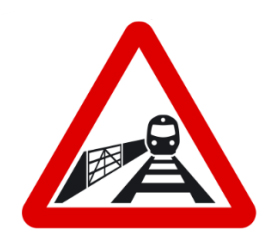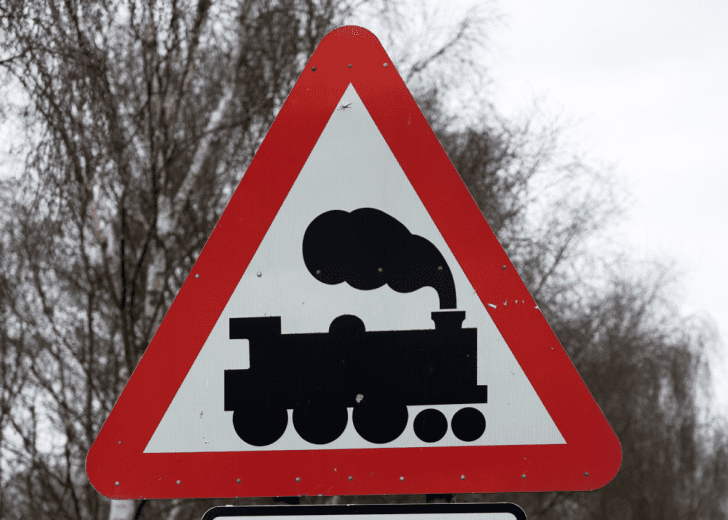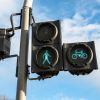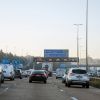The new signs for UK private crossings will now instead show modern diesel or electric trains and a gate to the side of the track – with hopes that it will help end safety concerns around the current design.
A rise in recent accidents has highlighted that the locomotive could be confusing to younger drivers, delivery drivers, and pedestrians unsure on what the signage means.
The iconic image of Britain’s role in the Industrial Revolution, is on roads across the country to warn drivers of a nearby level crossing without a barrier. A similar sign with a gate signifies a level crossing with a barrier.

Although many drivers may not know all the common UK road signs, a good understanding of the Highway Code’s signs is a vital part of any time spent behind the wheel of a vehicle.
Another distinguishing feature of UK roads are the range of crossings – it is equally important to understand the six types of road crossings.
What is a private crossing?
A private crossing is an area of road where the railway line crosses a private right of way – either a walkway, bridleway, path or road – which the road user needs to follow the instructions on when it is safe to cross.
The sign with a steam-powered train signifies a crossing with no barrier – and have been in place since the Traffic Signs Regulations and General Directions Act of 1964.
There are currently around 3,000 private crossings across the UK – many of which cross over farmland.
Why is the change happening now?
The Department for Transport (DfT) has warned UK drivers that ‘the number and diversity of users of private crossings have increased significantly’ in recent years – and that a new generation of drivers ‘may not have previously used private crossings and may be unfamiliar with how to use or operate these safely’.
Following an open consultation, DfT and the Government published a report titled ‘Improving signage at a private level crossings’, where they hope to help the public understand the crossings and ensure safer roads across the UK.
The report concluded that there is ‘room for improvement’ for road signage.
- Complete guide to UK road crossings
- New Highway Code rules – what you need to know
- Highway Code – impact of the latest updates
- Level crossings – everything you need to know
Years in the making
Although the report from the open consultation was only announced earlier this month, there have long been calls for changes to this road sign.
According to a 2014 report from the Rail Safety and Standards Board, the sign should be changed as drivers associated it with slow moving trains.
The Association of Directors of Environment, Economy, Planning and Transport stated that the current sign was not appropriate for today’s road user. The Rail Safety and Standards Board believed that the sign would not be understood by younger drivers.
An older report from 2005 from the Health and Safety Executive also questioned its use in modern Britain – due to the influx of foreign drivers.
Recent changes to the Highway Code
As well as the planned changes to road signs, the UK recently saw an updated Highway Code, impacting all road users.
However, the changes have caused further conflicts on the roads, making it more important than ever for drivers to be safe behind the wheel.

RAC sale – up to 33% off*
• Roadside cover from £5.29 a month†
• We get to most breakdowns in 60 mins or less
• Our patrols fix 4/5 breakdowns on the spot











